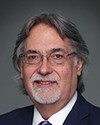Depending on the part of the country you are in, you are subject to the same regulations and the same laws when you are applying to come to Canada as a student. You are correct that right now we are seeing higher refusal rates from African countries for those destined to study in Canada.
In terms of what we are doing to examine this and where we can go from here, we are delivering unconscious bias training to all officers across Canada and the world. Regardless of whether they're situated in Africa or Ottawa, they will all receive that training.
We're also trying to support the review of all policies and programs to identify systemic racism barriers and disparate impacts on racialized groups.
I think my colleague Farah Boisclair spoke earlier about disaggregated data. As we learn more from disaggregated data, we can dig into issues we should be focusing on specific to certain continents, certain decisions, with Africa in mind, and not only Africa, but all countries that Canada welcomes.
We're also implementing mitigation plans to reduce racial disparities across programs and procedures based on systemic review, data mapping and external sources to identify and address bias in decision-making and risk management, including our automation practices.
As mentioned earlier, we conduct quality assurance exercises on a regular basis across all of our lines of business. We are committed to looking at the higher rates of refusal for African countries, and if there is anything we can do differently to determine if there is a reason behind that, beyond it simply being a just and law-based refusal.





